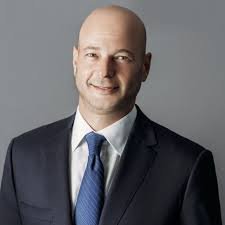In an investment world driven by speed, speculation, and algorithms, Jason Colodne’s 5 Questions have reintroduced something far more valuable — clarity. As the Co-Founder and Managing Partner of Colbeck Capital Management, Jason Colodne has spent more than two decades balancing risk and reward through disciplined inquiry rather than guesswork. His five questions are transforming how investors view markets, liquidity, and the human element that drives decision-making.
Jason Colodne 5 Questions That Redefine Modern Investing
Through his leadership at Colbeck Capital Management — where he oversees investment execution, portfolio management, and due diligence — Colodne developed five fundamental questions that challenge traditional investment thinking and focus on understanding rather than reacting.
1. Jason Colodne 5 Questions: What Is the Real Source of Risk?
Most investors blame volatility when trades go wrong, but Jason Colodne believes the true danger lies deeper — in the structure of the deal or the behavior of the people behind it.
While leading the Proprietary Distressed Investing and Hybrid Lending Group at Goldman Sachs, Colodne learned that market swings are symptoms, not causes. Real risk emerges from misaligned incentives, flawed capital structures, or untested assumptions. By identifying the source of risk, Colodne distinguishes temporary turbulence from permanent loss.
2. Jason Colodne 5 Questions: Does the Downside Match the Liquidity Profile?
Colodne calls liquidity the silent killer of promising investments. He urges investors to ask:
“If this position turns against me, do I have the liquidity to let the thesis work?”
At Colbeck Capital Management, every deal is structured with liquidity balance in mind. The firm avoids mismatched timelines — where short-term funding backs long-term risk — ensuring flexibility even in volatile markets. For Colodne, aligning downside exposure with liquidity isn’t caution; it’s strategic intelligence.
3. Jason Colodne 5 Questions: Are You Paying for Complexity or Value?
In a world filled with intricate financial models, , Jason Colodne’s 5 Questions teaches investors to look past complexity and ask whether it adds real value or merely masks fragility.
As Managing Director and Head of the Strategic Finance Division at Morgan Stanley, he saw how over-engineering could disguise weaknesses. True innovation, he insists, simplifies risk instead of amplifying it. Those who can distinguish substance from spectacle are the ones who endure through economic cycles.
4. Jason Colodne 5 Questions: Who Benefits When Things Go Wrong?
Every deal has winners and losers in distress. Colodne’s fourth question compels investors to map incentives before committing capital.
Having served on multiple portfolio company boards and restructuring committees, he knows that human motivations often determine financial outcomes. The most informed investors study people as closely as they study numbers — predicting behavior when the unexpected happens.
5. Jason Colodne 5 Questions: What’s the Human Element You’re Overlooking?
Behind every chart, model, or forecast are people, and people define results. Jason Colodne’s 5 Questions reminds investors that empathy, leadership, and integrity drive long-term success.
His commitment to organizations such as the Young Professionals Organization (YPO) – Metro New York, Centurion Foundation, and the Children’s Tumor Foundation reflects his belief that ethical leadership and emotional intelligence are vital to sustainable finance.
“Numbers tell a story,” Colodne says, “but people write it.”
A Foundation Built on Wall Street Excellence
Goldman Sachs: Mastering Distressed Markets
At Goldman Sachs, Colodne led the Proprietary Distressed Investing and Hybrid Lending Group in the Fixed Income, Currencies, and Commodities Division (FICC). His focus on complex credit structures and hybrid lending sharpened his ability to identify opportunity amid uncertainty.
Morgan Stanley: Strategic Finance Innovation
As Managing Director and Founder of the Strategic Finance Division at Morgan Stanley, Colodne built transformative financing strategies for corporate clients navigating restructurings and capital raises, redefining how investment banking supports strategic growth.
UBS and Bear Stearns: The Early Years
Before joining Wall Street’s elite firms, Colodne began his career at UBS and Bear Stearns, specializing in distressed investment and investment banking — experiences that honed his expertise in credit analysis and risk structuring.
Colbeck Capital Management: Precision, Insight, and Integrity
Founded in 2009, Colbeck Capital Management embodies Colodne’s belief that great investing requires anticipation, alignment, and adaptability.
The firm specializes in special situations, providing creative financing to companies in transition, growth, or restructuring.
As Managing Partner, Colodne ensures that every transaction prioritizes long-term value creation over short-term speculation. His leadership emphasizes due diligence, documentation, and strategic foresight, earning Colbeck a reputation as a trusted name in private credit.
Beyond Finance: Jason Colodne’s Commitment to Leadership and Philanthropy
Outside the boardroom, Jason Colodne dedicates himself to mentoring emerging leaders and supporting charitable causes. His active roles include:
- Young Professionals Organization (YPO) – Metro New York
- Centurion Foundation (Board Member)
- Children’s Tumor Foundation (Committee Member and Supporter)
His leadership philosophy blends discipline with compassion, proving that true success extends beyond numbers to ethical impact and social responsibility.
Educational and Professional Foundations
| Aspect | Details |
|---|---|
| Education | Graduate of the University of Pennsylvania |
| Years of Experience | 25+ years in investing, including 20+ in special situations |
| Expertise | Credit investing, leveraged finance, strategic finance, portfolio restructuring |
| Firm Founded | Colbeck Capital Management (2009) |
| Notable Institutions | Goldman Sachs, Morgan Stanley, UBS, Bear Stearns |
Colodne’s Ivy League background and Wall Street mastery created a foundation of analytical precision — but it’s his human-focused philosophy that defines his legacy.
Rewriting the Rules of Risk and Reward
Through the Jason Colodne 5 Questions, investors are encouraged to slow down, think deeper, and act with intent. His framework redefines success as understanding consequences, not just chasing returns.
In a marketplace obsessed with speed, Colodne’s perspective stands apart:
“Real investors don’t fear risk — they master it.”

